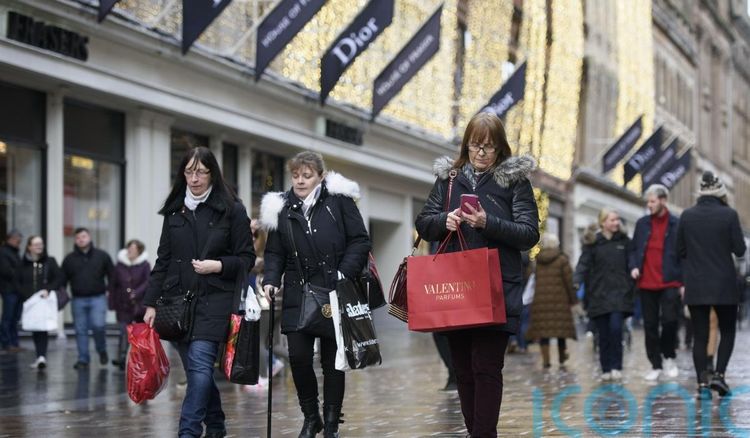Coronation boosts Scottish sales but inflation remains big problem, say traders

The trade association cautioned that although there has been a rise in sales in Scotland, merchants should be alert to the possibility of "persistently high inflation".
The rise in Scottish retail sales was attributed by researchers to the coronation of the King and the bank holidays that occurred in May. However, they cautioned that just because one month was slightly better, it does not necessarily mean that the economic challenges will be resolved anytime soon.
Between April 30 and May 27, the total sales for Scotland in the month were up by 10.9% as compared to the corresponding month in 2022, when sales had increased only by 1.6%.
The figure is higher than the typical increase rate of the past three months, which was 9.5%, and the average growth over the past year, which was 7.8%.
When taking into account the effects of inflation, the growth from one year to the next was 2%.
The figures are provided by the Scottish Retail Consortium (SRC), a group that provides information about earnings, customer numbers, and empty shops.
The SRC looked at different types of sales in May which included food, non-food, and online sales.
The SRC noticed that the statistics for all three classifications went up in contrast to the data from May of next year.
Ewan MacDonald-Russell, who is in charge of policy and external affairs for SRC, stated that Scottish citizens enjoyed an impressive shopping spree during the May bank holiday weekend. The additional public holidays, King's Coronation celebration, and favorable weather conditions helped lure shoppers back to spending again.
In actuality, sales experienced a 2% increase. A larger percentage of the growth was seen in the clothing and footwear sector, as shoppers sought to update their wardrobes with the latest styles for the warmer seasons.
The amount of money generated from food sales is constantly growing at a great rate due to the outstanding inflation rates in the food industry.
The sales of groceries went up for food and beverages intended for bigger get-togethers and open-air dining due to the additional vacations that urged people to socialize outdoors, which came after a really dull March and April.
Sales of items other than food, such as clothing, DIY, and horticulture, experienced notable increases. This can be attributed to homeowners' efforts to tidy up and enhance the appearance of their gardens.
Despite a successful month for Scottish retailers, Mr. MacDonald-Russell stated that the predominant concern is the persistently high inflation.
He stated that customers are only buying items that are necessary, and don't have much extra money to spend on non-essential things.
Although there's a glimmer of hope that inflation might decrease, a single month of improvement doesn't necessarily mean that the economic troubles will disappear anytime soon.
Paul Martin, who is in charge of the retail sector in the UK for KPMG, agrees with Mr. MacDonald-Russell. He says that the cost of food is not going down anytime soon and that this is causing people to reconsider their purchases of non-essential items.
He added: "At present, the grocery industry is experiencing rapid growth and consumers are having to allocate a greater portion of their finances in this area, which has seen prices increase at a higher rate."
The retail industry is in for a challenging time this summer as Scottish shoppers are facing ongoing high food prices that refuse to budge. Despite this, they remain determined to keep spending. However, the situation is likely to worsen if interest rates rise further, making it harder for them to afford purchases beyond the essentials. In short, retailers in Scotland will need to brace themselves for a potentially difficult few months.
This blog post includes a message below for further reading.







































